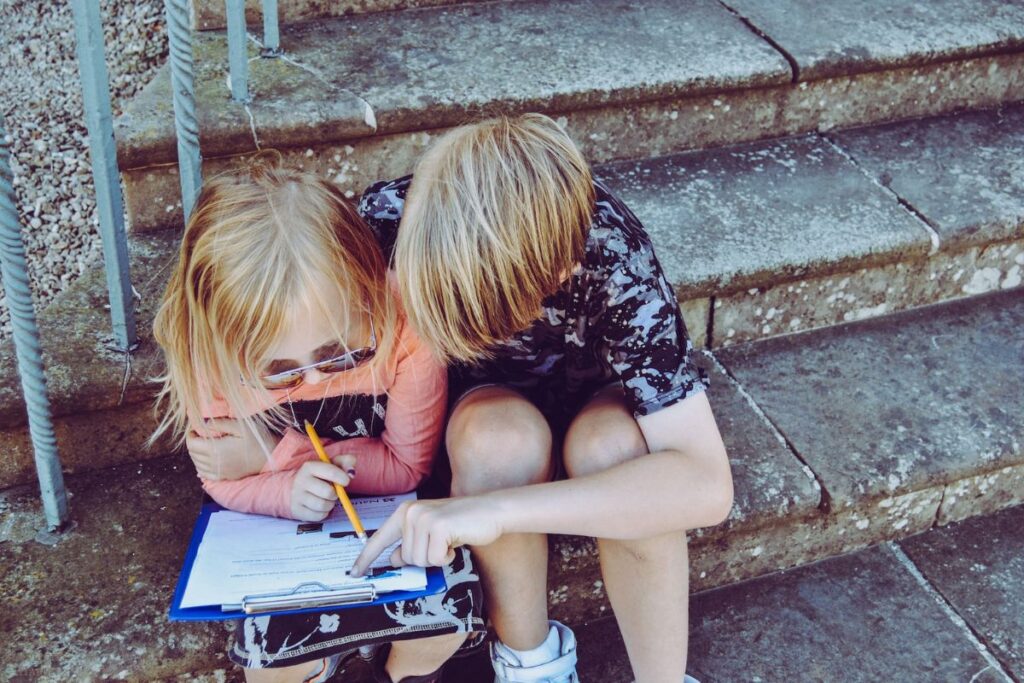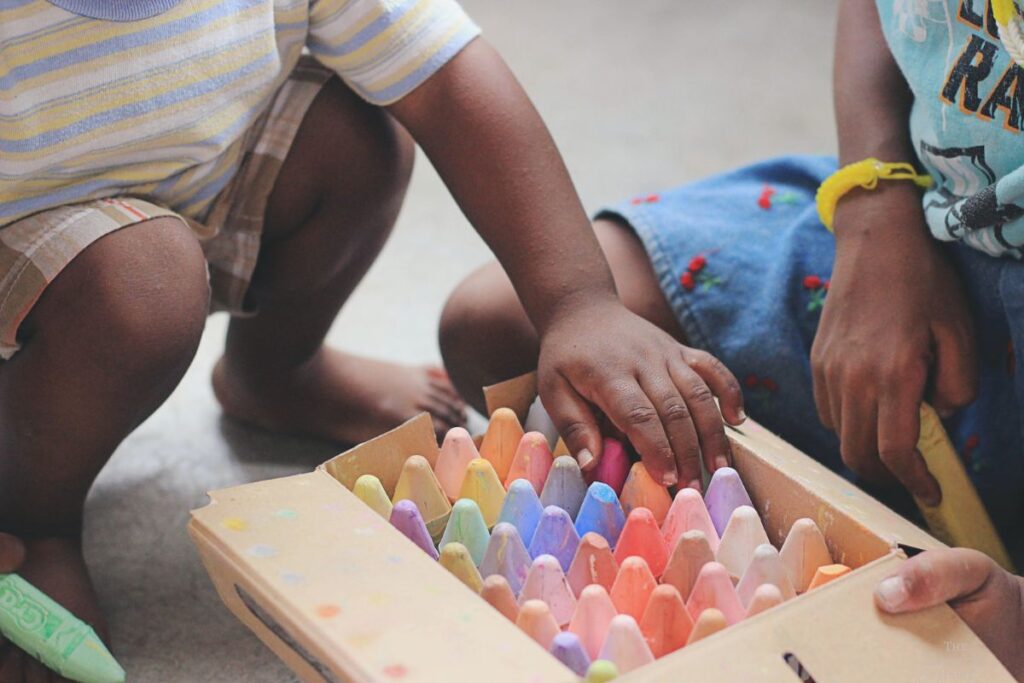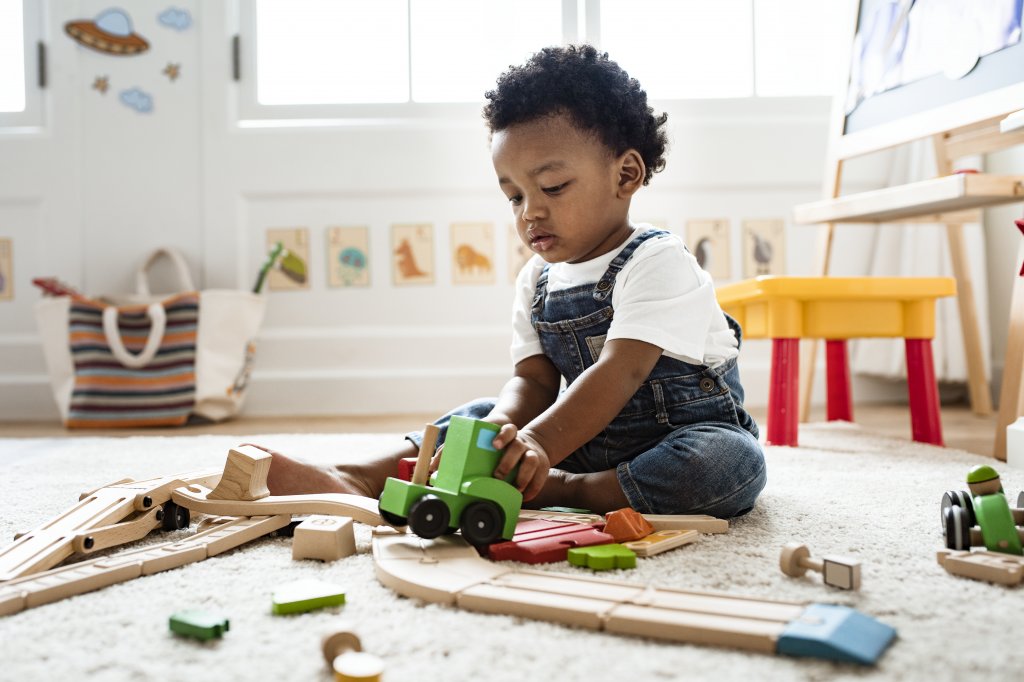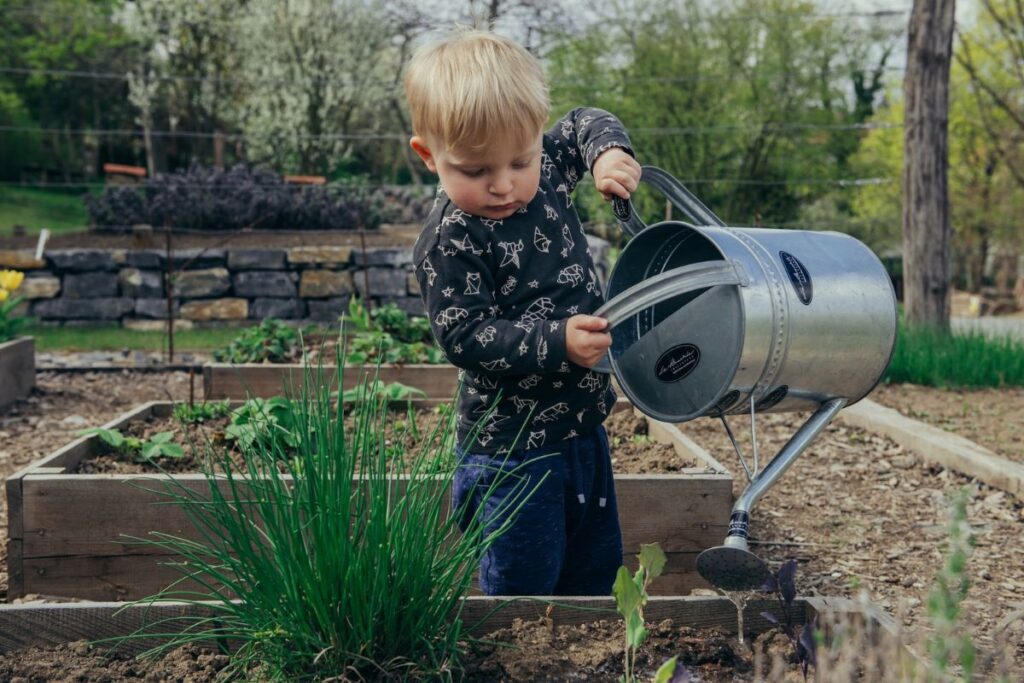Inside: Want to know what minimalist parenting looks like? Here are ten ways to parent like a minimalist by embracing simplicity.
A guest post by Rose Morrison
Parenting trends come and go, but sometimes what’s most helpful isn’t another trick or trend. Often by simplifying and focusing on the things that matter most, we can uncover what was missing all along.
Whether you’d describe yourself as a minimalist or not, there are helpful lessons we can learn about how to encourage simple living through our parenting choices.
Read on to learn about ten ways minimalist parenting is embracing simplicity to determine if they may be just what your family needs to thrive.

10 Ways Minimalist Parenting Embraces Simplicity
Want to learn how to parent like a minimalist? Here are ten ways minimalist parenting embraces simplicity in their lives.
1. It Reserves Free Time for Play
Parents want their kids to be happy and simplifying their lives can help bring a greater sense of calm and more joy by allowing them more time to play and enjoy childhood.
Children are spending less time outside playing and aren’t getting the recommendedour child’s pediatrician likely recommends the standard 60 minutes of physical activity each day.
Free time can become more challenging for families as their children age. There are after-school activities and responsibilities to schedule. Those things are essential, but minimalist parenting leaves time specifically for unstructured play.
Let your child connect with their true self through creative expression or play with their siblings or family members. It will allow them the freedom to explore their interests.
Overscheduling their life can create stress and tension for both you and the child. Prioritizing unstructured free time is a simple way to enjoy life together and strengthen family relationships.

2. It Values Partnership
Many societies value the narrative that people can or should do everything for themselves. People appreciate someone who’s responsible and learns from mistakes, but children may not form healthy relationships later in life if they don’t value relying on others.
Embracing simplicity might mean showing your child the value of partnership. When they start working on their at-home responsibilities like doing dishes or organizing their toys, offer to help them as they learn and then encourage them to partner up with a sibling when needed.
They’ll notice how doing things with a partner is easier, and sometimes more enjoyable, than doing the same thing alone. They’ll begin to recognize the fine line between asking for help as needed and doing things independently when they can.

3. It Makes Everything More Meaningful
There will always be another toy or video game. If your child finds those things most exciting, they might miss the joy that comes from what they already have.
Minimalist parenting embraces simplicity by encouraging them to find meaning in what’s at home. Indulging in new purchases can wait until a special occasion like a holiday or birthday.
Focus on making memories instead. Encourage creative and imaginative play. It’s amazing what kids will come up with when they’re not constantly distracted by new things. They can invent new games by themselves or play with siblings.
It’s a significant first step in finding contentment in your life, which is a skill many adults struggle to achieve after decades of wanting the next new thing on the market.

4. It Limits Screen Time
Watching a movie together as a family can be fun, but too much screen time isn’t healthy for young minds. Researchers found excessive screen time with TVs, computers, and video game consoles can trigger mental health conditions while lowering self-esteem by overworking the brain.
Your child can avoid the adverse effects of overstimulation by embracing simplicity. Determine what your boundaries and limits with screen time will be and then provide opportunities for them to use their imagination with toys, writing, coloring, playing outside and time with their friends.
The designated screen-free time will foster their independence by developing their imagination and their self-confidence in their ability to entertain themselves. They’ll also use fewer regions of their brain simultaneously, preventing overstimulation.

5. Fewer Toys & Greater Personal Responsibility
Rather than filling your child’s room with every toy under the sun, embracing simplicity means having fewer toys and ones that encourage imagination and creativity.
Studies have found that the fewer toys children have, the more they play. By being intentional with what toys your kids have available to them you can encourage greater focus and a deeper dive into creative and imaginative play.
Having fewer toys also helps to set your children up for success in being responsible for their own things. When they don’t have too much stuff to manage and it can easily be put away, it will be a simpler task for them to complete so they can maintain their space.

6. It Transforms Meals Into Family Time
Sometimes, families have to eat on the go. It’s an unfortunate part of a busy schedule, but minimalist parents purposefully fit family meals into their weekly routine whenever possible.
Your child will get precious one-on-one time with you, creating opportunities for deep conversations and new memories.
You can eat together at home or out at a restaurant. Have a picnic in a local park or serve dinner on your back porch.
As long as there aren’t distractions like TVs or cell phones at the table, your child will enjoy relaxing with you and savoring a great meal together.

7. It Makes Volunteering More Rewarding
There are simple ways to teach gratitude to your kids. In learning to be grateful for what you have, you can also help teach your kids to notice situations where they could help those in need.
Parents embracing simplicity teach their kids to look outside the house and see who needs help. They may even spot people in need in their classrooms.
Volunteer organizations pass out backpacks full of food to address childhood hunger in underserved communities in addition to helping food banks.
Your kids could experience the rewarding rush of helping others and learn how much more enjoyable it is than losing time to video games or busy schedules.

8. It Accepts Quiet Environments & Avoids Overstimulation
Technology makes it easy to constantly have some form of stimulation in the background of your life. People turn on music, their TV, or a podcast to fill the silence, but the auditory stimulation being on all the time can feel overwhelming.
Periods of quiet allow people to enjoy silence together. They’re also moments for introspection, which is crucial for kids as they grow into their identities.
When your child doesn’t feel like talking or listening to music, let them play or do their homework silently. They’ll connect with their inner thoughts more easily.
They also won’t feel the need to fill your home with conversation to do emotional work for people uncomfortable with silence, setting themselves up for healthier relationship dynamics.
Accepting and embracing quiet helps to minimize overstimulation which has become a common challenge for many children.

9. It Encourages Kids to Relax
Simplicity means being with family instead of entertaining yourself with toys or technology in another room.
Rest is an important skill to learn in a busy world that is constantly telling you to go, go, go. Kids learning this at a young age can help them to have a greater sense of balance in their lives.
Additionally, relaxing together weaves critical connections between family members because it means you value each other for who you are, not what you do for each other.
Try sitting on the front porch in the evening after dinner, taking deep breaths and listening to the birds. Teach your child how to be mindful through these relaxation opportunities.
You’ll ground them in their senses through listening, watching, and breathing. Meanwhile, whatever stress or anxiety they feel will slip away as their mind relaxes with you. Teaching this to your kids will help you to rest and destress as well.

10. It Encourages Emotional Processing
Busy lives led by the consumeristic need to have more things can create a distraction from the emotions happening inside you. Simplistic parenting teaches kids to pause and ask what they’re feeling instead of masking emotions with business.
Pause in the quiet moments at meals or while relaxing with your child. Ask them what they’re feeling. If they can name it, encourage them to get curious.
Ask why they feel that way or how that emotion is helping them. You’ll walk them through how to process feelings in real time, preventing your child from becoming scared of emotions that become more intense as they face more grown-up challenges in the future.
Practicing minimalism with your kids is good for their development and can help them learn key life skills that they’ll need later on in life.

Minimalist Parenting Embraces Simplicity
Figuring out how to raise your child is an ongoing process. Consider embracing simplicity as you determine what minimalist parenting means to you.
Rejecting busy schedules, the need for more things, and constant stimulation could foster a deeper relationship with your child that prepares them for adulthood more effectively.
Which minimalist parenting practices do you hope to embrace in your home? Let us know in the comments!
Sign up on the form below to get weekly simplifying and intentional living inspiration sent straight to your inbox. You’ll also receive the free Priorities Assessment Worksheet to help you declutter your schedule and focus on what matters most!


